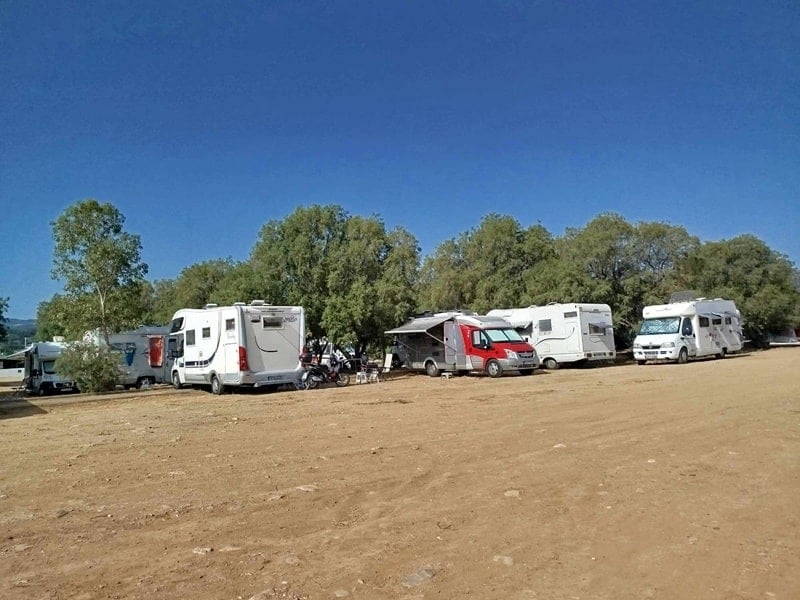

A dramatic shift in how motorhomes and caravans are treated in Greece has been brought about by a recent law that broadly bans the parking of any type of caravan or trailer in public areas.
It also reaches into private property rights, explicitly prohibiting individuals from hosting more than one vehicle, even on their own land. Penalties range from a €300 fine to three months of imprisonment.
Although the law has been in effect since January 2025, it gained public attention only recently when three members of the Hellenic Motorhome Club (ELAT) were fined by police in Kato Akrata, Peloponnese. The incident sparked concern among the caravaning community, with ELAT quickly mobilizing and bringing the law into the public spotlight.
Under the new regulation, any installation or parking of caravans in public spaces, such as parking lots, beaches, parks, or forest areas, is strictly forbidden. The law does not specify any minimum time limit, meaning even a brief stop to rest can technically be deemed a violation, potentially resulting in fines or legal consequences.
Equally contentious is the provision that bans the free hosting of more than one caravan on private property. For instance, even if a landowner wishes to accommodate two motorhomes on their plot, doing so would be considered illegal, carrying the same risk of punishment.
The law has drawn fierce backlash from caravan owners, many of whom claim it unfairly targets a form of alternative tourism under the guise of environmental protection.
Caravan owners value the freedom to travel and camp spontaneously. This law drastically limits that freedom, essentially criminalizing one of the core features of the caravan lifestyle. Critics argue that the restrictions go beyond reason and threaten a long-standing lifestyle and travel tradition.
In response, ELAT has outlined the following immediate steps:
Critics argue that caravan and motorhome tourism is an important segment of Greece’s off-season, eco-friendly, and low-impact travel sector. This law may deter both domestic and international travelers, redirecting them to other countries in the Mediterranean.
Small towns, rural shops, tavernas, and campsites often depend on caravan travelers for a steady flow of income. With fewer caravans on the road, local economies could suffer, especially in remote areas with little mainstream tourism.
